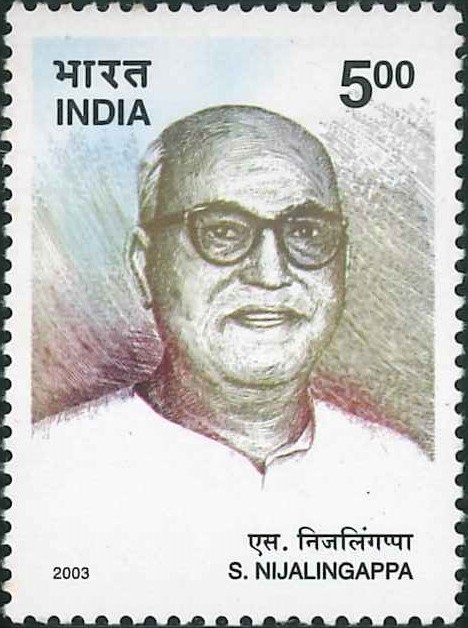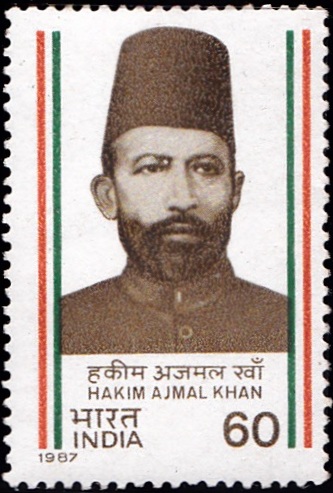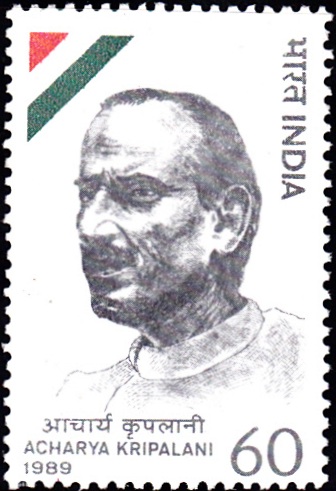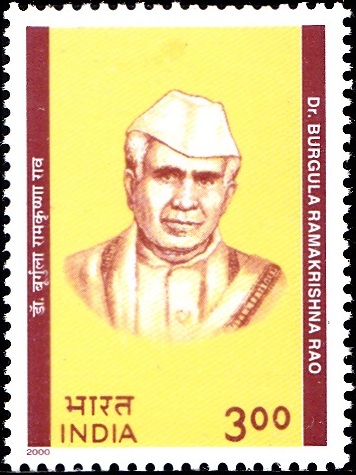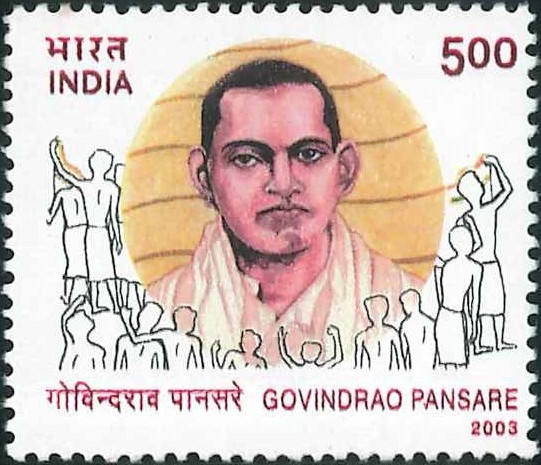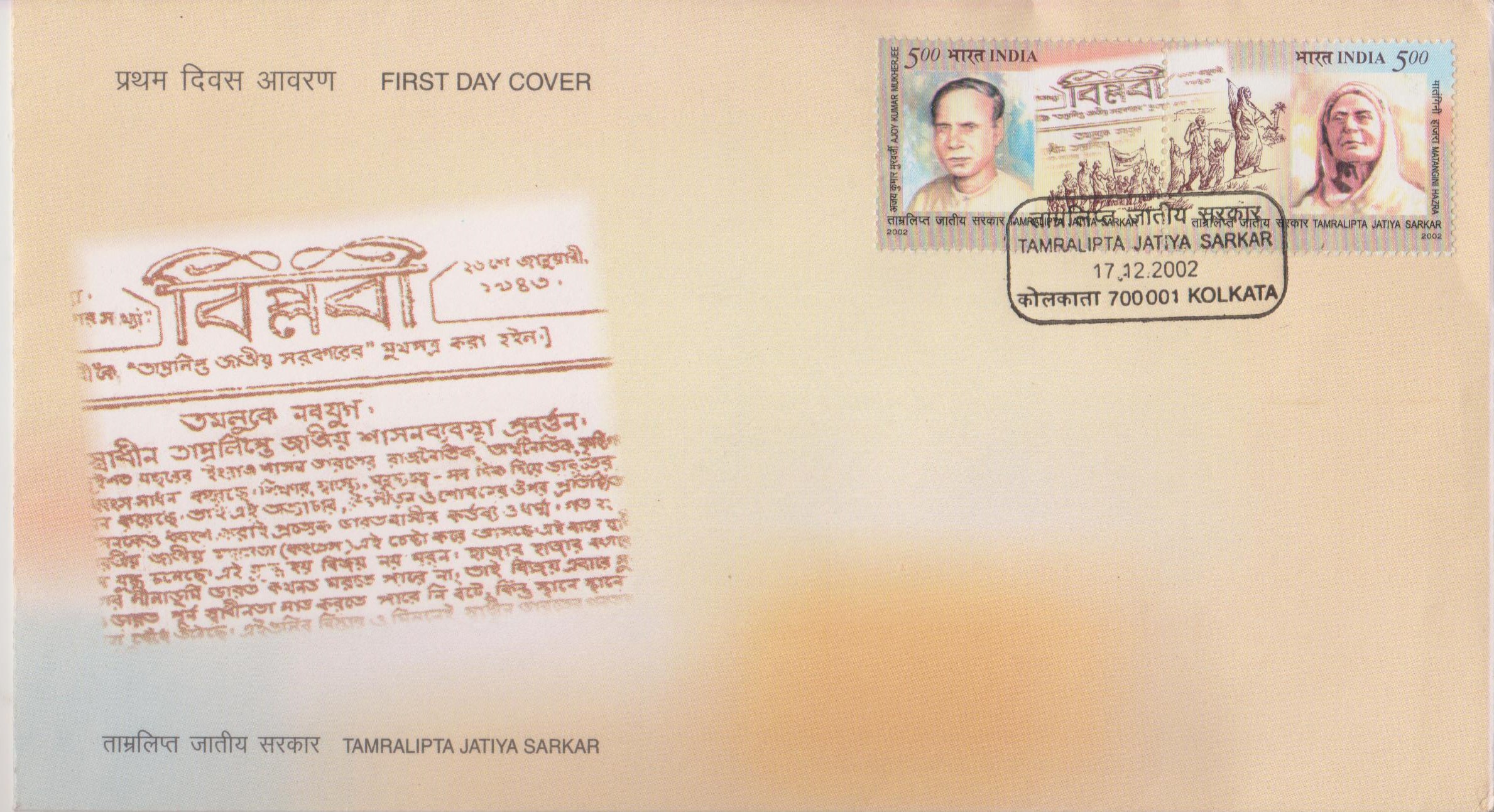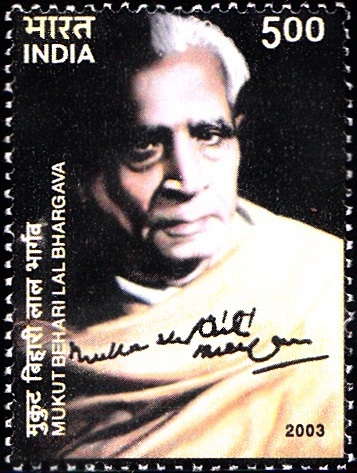
Mukut Behari Lal Bhargava
A commemorative postage stamp on the Birth Centenary of Mukut Bihari Lal Bhargava, elected to 1st Lok Sabha (1951) from Ajmer South constituency in Ajmer state :
Issued on Dec 18, 2003
Issued for : The Department of Posts honours the memory of Mukut Behari Lal Bhargava who stands like a beacon at the confluence of the political, legal and nationalistic streams of India’s life.
Credits :
Stamp : Bharati Meerchandani
FDC & Cancellation : Alka Sharma
Type : Stamp, Mint Condition
Colour : Four Colour
Denomination : 500 Paise
Overall size : 2.90 x 3.91 Cms.
Printing size : 2.90 x 3.91 Cms.
Perforation : 13 x 13
Paper : Imported un w/m Adhesive Gravure Coated stamp paper in Sheets 50.8 x 53.5 Cms.
Print Quantity : 0.4 Million
Number of Stamps per sheet : 35
Printing Process : Photogravure
Printer : India Security Press, Nashik
Name : Mukut Bihari Lal Bhargava
Born on Jun 30, 1903 at Shahpura, Bhilwara, Rajasthan, India
Died on Dec 18, 1980 at Jaipur, Rajasthan, India
About :
- Born in 1903 in Shahpura, Bhilwara, Rajasthan, Mukut Behari Lal Bhargava established his personal and professional presence well beyond the boundaries of his birthplace. Adopted by Vinodi Lal Bhargava of Beawar near Ajmer, he rounded off his studies with a Master’s degree in History and a Bachelor’s degree in Law from Allahabad University. He began his legal practice at Beawar in 1927.
- Ajmer became the fulcrum of his activities which expanded beginning with membership of the Beawar Municipality in the same year. He joined the Indian National Congress in 1930 and became a committed participant in its activities. His ability as a lawyer saw him become president of the Bar Association in Beawar to begin with. Later he was Chairman of the Rajasthan Bar Council. He was articulate and persistent in seeking democratisation of administration in the Ajmer-Merwara territory and extended the fight to seeking the same for the States of Rajputana and Central India.
- Working with the Congress he was arrested in 1941 for individual “satyagraha” and again during the Quit India Movement in 1942. He lost his eyesight during detention, but this did not douse the light of his resilient spirit. He was elected to the Central Legislative Assembly in 1945 and later to the Constituent Assembly. Ajmer returned him to Parliament three times as its representative. His eloquent and fearless advocacy was made available often free of cost to people, groups and causes that he passionately believed in: matters relating to weaker sections, farmers, labourers, freedom from foreign rule, women’s education, untouchability, the use of Hindi as an official language and communal harmony. As a lawyer he received recognition even in the Supreme Court. His legacy lives on in his private collection of legal literature and in the welfare fund he set up for lawyers.
- Even after withdrawing from active political life in Parliament, his commitment to these issues continued unabated. His nationalism was not limited to the political arena. It carried him and his formidable memory and eloquence into a lifelong dedication to the upliftment of educational, social & cultural institutions. No issue was too small for his attention, whether it was widow rehabilitation or rationing of foodstuffs.
- Text : Based on material received from the proponent.



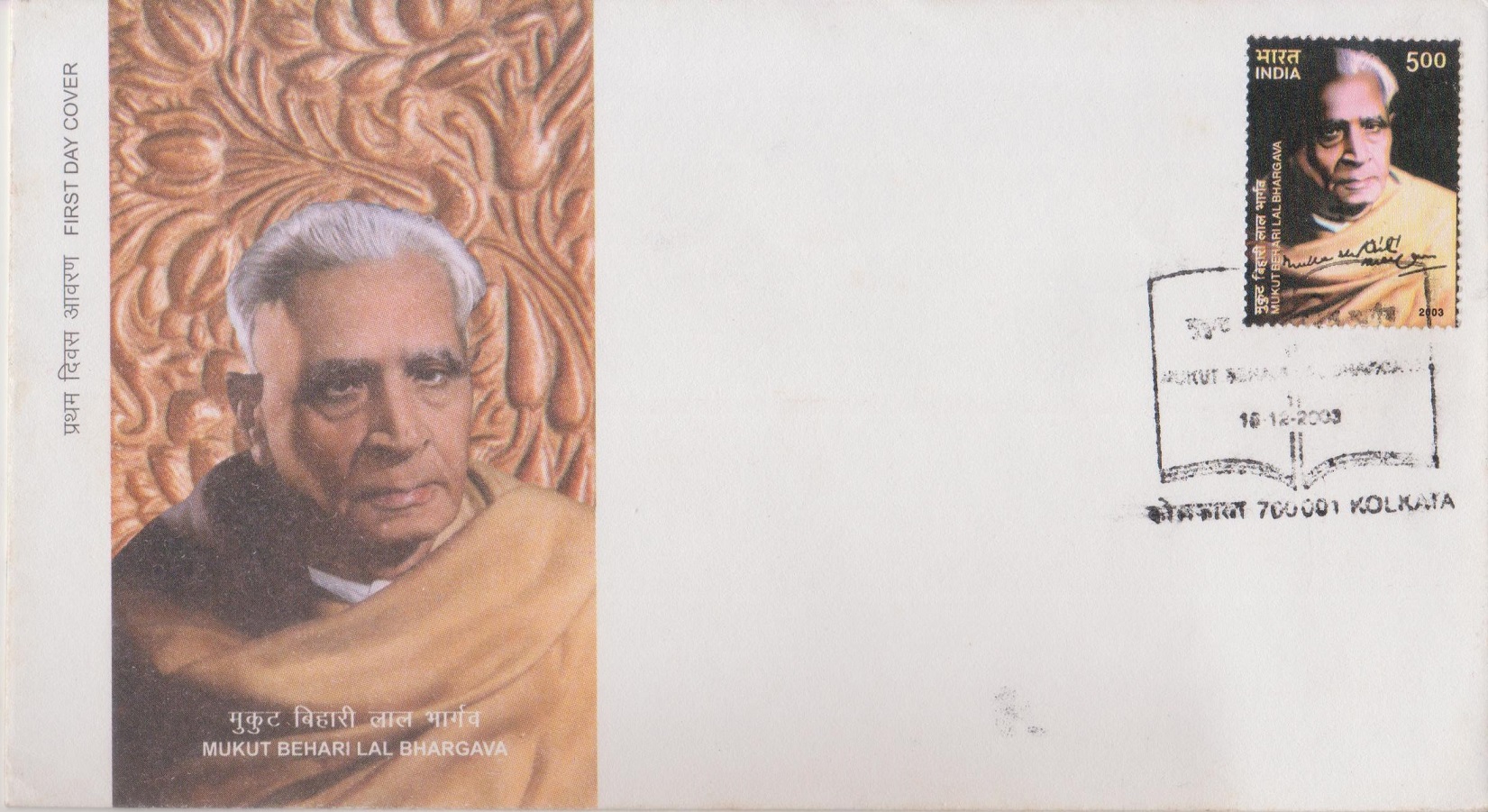 Issued by
Issued by